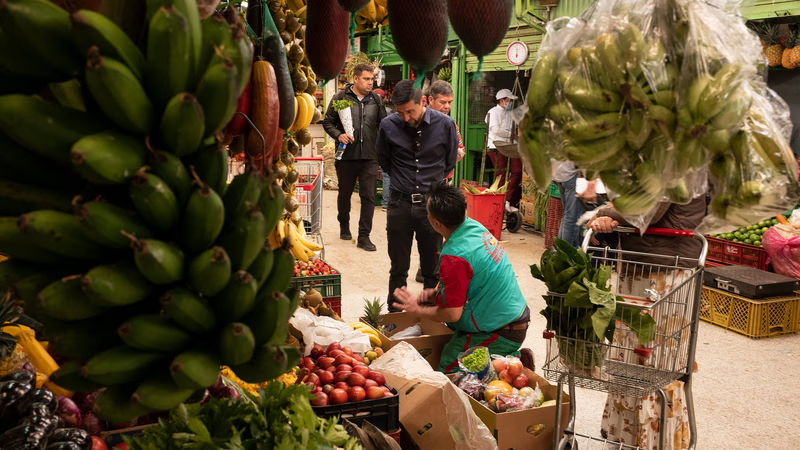
Colombia`s economy is classified as a middle-income, emerging market economy that has seen steady growth over the past decades. Its key sectors include oil, mining (notably coal and gold), agriculture (with coffee, bananas, and flowers being major exports), manufacturing, and services. Colombia has adopted open-market policies, implementing free trade agreements (FTAs) with numerous countries and regions, including the U.S., the EU, and countries in Latin America. Colombia`s fiscal policy is geared towards encouraging foreign direct investment (FDI), promoting exports, and diversifying its economy beyond dependence on natural resources.
The country is highly active in international trade, exporting commodities such as oil, coal, coffee, flowers, and precious metals. On the import side, it brings in machinery, transportation equipment, chemicals, and foodstuffs, making it an important player in the global commodities and goods trade. Colombia`s financial system is relatively well-developed, with a stable banking sector, capital markets, and access to international financial services. The Colombian peso (COP) is the country`s currency, and though it can be volatile, the government has implemented measures to manage inflation and maintain monetary stability.
When it comes to trade relations with the Middle East and West Asia, Colombia has been expanding its economic ties in recent years. While historically the region hasn’t been Colombia`s largest trading partner, there has been an uptick in trade, particularly with Gulf Cooperation Council (GCC) countries like the UAE and Saudi Arabia. Colombia exports agricultural products like coffee, fruits, and flowers to these countries, while importing petroleum products, chemicals, and machinery from them. There are also growing business exchanges in technology and infrastructure projects.
The Colombian government is keen on fostering deeper economic and diplomatic relations with the Middle East. Bilateral trade missions, as well as participation in international trade fairs, have been part of this push to create new market opportunities. Both regions share an interest in diversifying their economies, which has facilitated trade discussions. Additionally, Colombia has been working on attracting investment from Middle Eastern sovereign wealth funds in sectors like renewable energy, infrastructure, and tourism. Although trade volumes are still modest compared to Colombia’s major trading partners, such as the U.S. or China, there is potential for significant growth, especially as both Colombia and Middle Eastern nations seek to diversify their trading relationships.
No profiles available to display
In 2025, Colombia"s trade landscape presents a complex yet navigable terrain for international business professionals. Notably, while Colombia"s GDP reached $363 billion in 2023, surpassing the global average of $883 billion, the country"s export performance as a percentage of GDP (17. 8%) lags behind the global average of 32. 1%. This indicates a significant gap and potential growth area for Colombian exporters, especially in underexplored markets like West Asia. Interestingly, Colombia"s merchandise import value index saw a steep decline to 81. 1 in 2023 from 126. 7 in 2022, compared to a global decrease to 101.
1. This suggests either a contraction in demand or a strategic pivot towards domestic sourcing. Conversely, the import volume index also decreased to 85. 5, further diverging from the global trend of moderate growth (104. 5), highlighting potential inefficiencies or barriers in the supply chain that need addressing. Inflation remains a critical concern for Colombia, with consumer prices increasing by 11. 7% in 2023, above the global average of 8. 6%.
This inflationary pressure could affect purchasing power and industrial costs but also presents an opportunity for cost-efficient solutions and innovations in trade operations. For Colombian businesses targeting West Asia, leveraging Colombia"s diverse economic base, where industry and services play significant roles, can provide a competitive edge. The industry sector, despite challenges, remains robust and could benefit from increased capital formation, which, however, has seen a notable decline to 13. 6% of GDP, well below the global average of 23. 8%. Engaging with platforms like Aritral. com, which offers AI-driven trade solutions, can significantly enhance market visibility and operational efficiency. Aritral facilitates direct communication and global sales assistance, enabling Colombian exporters to tap into West Asian markets more effectively and manage supply chains innovatively.
Establishing a business profile on Aritral can yield strategic insights and foster crucial B2B connections in this promising trade corridor. "